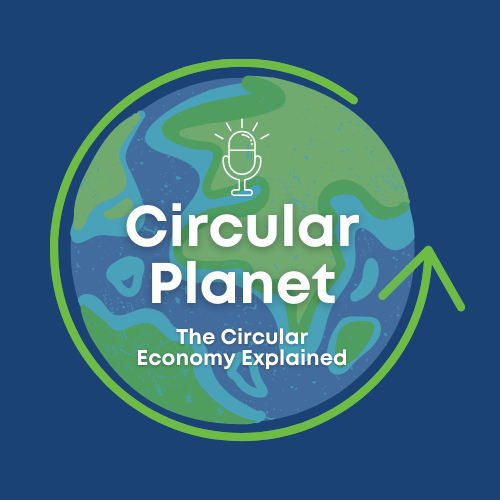Circular Planet
The Circular Economy Explained
Welcome to the Circular Planet Podcast!
My name is Alicja, I am an Environmental Leaders Intern at Bethesda Green and the host of the Circular Planet podcast! Join me as I take you on a journey to explore how adopting a circular economy can shift the world away from the current unsustainable growth trajectory and into a future where economic success does not come at the cost of a depleted environment and the devastating impacts of climate change.
Episode 1 | What a Waste: The Linear Economy
Why do we produce so much waste and pollution in the first place? In this episode I will be discussing the root cause: the linear economy, and its negative effects on our planet. But what can be done? We will learn about the concept of sustainability and introduce the vision of the circular economy as an emerging solution to combat the effects of the linear economy. We will hear from Dr. Diana Watts, Professor of environmental science and policy at Johns Hopkins University and Trinity University!
About the Featured Guest:
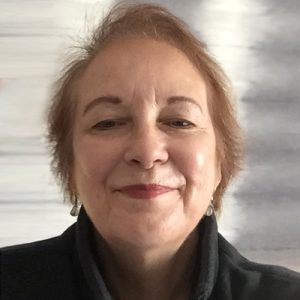
Diana Watts teaches in the Environmental Science and Policy program, at Johns Hopkins University, holds a Research Associate appointment at ESPOL, Catholic University of Lille and is Chair of the Business Department at Trinity Washington University. Dr. Watts brings a political economy perspective to her research on adaptive learning and social innovation models. With a passion for teaching, her courses include Sustainable Business and Managing Responsible Organizations for the Ecosystem. She received her PhD from the University of California, Berkeley. Dr. Watts is a Bethesda Green Board member as well as serving on the Innovation Lab Team.
Episode 2 | No Waste in the First Place: Circular Design
What if we could “design out” waste and pollution? In this episode I will be discussing the importance of product and system design and why it is critical to rethink the way things are designed. We will get to know what design in the circular economy looks like and all of its benefits! To get a better sense of the circular design process, we will hear from Vanessa Barboni Hallik, the CEO of the sustainable clothing company, Another Tomorrow.
About the Featured Guest:
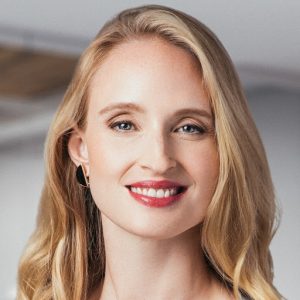 Vanessa Barboni Hallik is the founder and CEO of Another Tomorrow, an end-to-end sustainable luxury design company and platform for discovery and action committed to transparency and a circular economy. She is also an investor in early-stage companies with strong ESG commitments catalyzing system change. Vanessa serves on the Board of the Accountability Counsel and the Advisory Boards for the Carr Center for Human Rights Policy at Harvard Kennedy School and the Trust for Public Land.Prior to founding Another Tomorrow, Vanessa was a Managing Director at Morgan Stanley, where she held several leadership roles in the emerging markets institutional securities business. While at Morgan Stanley, she served as a Trustee on the Board of the Morgan Stanley Foundation and represented the firm at the Council on Foreign Relations. She likewise chaired the Fixed Income Philanthropy Committee, during which she initiated and subsequently led the firm’s mentoring program with East Side Community High School, in partnership with PENCIL.org. Vanessa holds a B.A. in Economics from Cornell University and is an M.S. Candidate at Columbia University’s Earth Institute. She resides in New York City with her family and two dogs.
Vanessa Barboni Hallik is the founder and CEO of Another Tomorrow, an end-to-end sustainable luxury design company and platform for discovery and action committed to transparency and a circular economy. She is also an investor in early-stage companies with strong ESG commitments catalyzing system change. Vanessa serves on the Board of the Accountability Counsel and the Advisory Boards for the Carr Center for Human Rights Policy at Harvard Kennedy School and the Trust for Public Land.Prior to founding Another Tomorrow, Vanessa was a Managing Director at Morgan Stanley, where she held several leadership roles in the emerging markets institutional securities business. While at Morgan Stanley, she served as a Trustee on the Board of the Morgan Stanley Foundation and represented the firm at the Council on Foreign Relations. She likewise chaired the Fixed Income Philanthropy Committee, during which she initiated and subsequently led the firm’s mentoring program with East Side Community High School, in partnership with PENCIL.org. Vanessa holds a B.A. in Economics from Cornell University and is an M.S. Candidate at Columbia University’s Earth Institute. She resides in New York City with her family and two dogs.
Episode 3 | Closing the Loop: Keeping Materials in Use
Waste, never heard of it. One of the most important concepts behind the circular economy is for materials to not be wasted, and used to their highest value. But what does this mean and how do we do it? In this episode I will discuss different ways to keep materials in use, and what companies, communities, and individuals can do to help. To help us understand how it can be done in practice, I spoke with Matias Arnal, an economist and founder of Urbanized, a company that reuses organic waste to create beauty products.
About the Featured Guest:
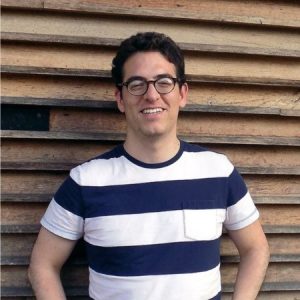 Matias Arnal is the Co-Founder and CEO of Urbanized, a company dedicated to repurposing waste to create environmentally friendly products. He makes investments in mission-driven companies and is dedicated to making the world a better place. He is a World Bank Economic Consultant with over ten years of experience in economic development. He previously worked for Booz Allen Hamilton as a Senior Consultant and the International Monetary Fund as a Research Analyst. He graduated from Johns Hopkins University with a Master of Science in Applied Economics and Investments and Cornell University with a Bachelor of Science in Applied Economics and Management.
Matias Arnal is the Co-Founder and CEO of Urbanized, a company dedicated to repurposing waste to create environmentally friendly products. He makes investments in mission-driven companies and is dedicated to making the world a better place. He is a World Bank Economic Consultant with over ten years of experience in economic development. He previously worked for Booz Allen Hamilton as a Senior Consultant and the International Monetary Fund as a Research Analyst. He graduated from Johns Hopkins University with a Master of Science in Applied Economics and Investments and Cornell University with a Bachelor of Science in Applied Economics and Management.
Episode 4 | From Depletion to Regeneration of Natural Systems
Did you know that agriculture is a huge contributor to climate change? We will explore how, instead of continuously degrading our soil, we can employ farming practices that allow nature to rebuild soils to fight climate change and increase biodiversity. To help us understand the differences between growing food with conventional farming, versus organic regenerative farming, we will hear from Ryanji Kalivretenos, a regenerative farmer and yogi, who is founder of Common Root Farm in Olney Maryland; and Mike Protas and Charlotte Henderson, from One Acre farm in Dickerson, Maryland.
About the Featured Guests:
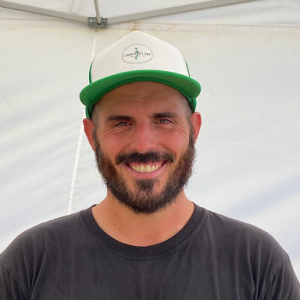 Ryanji Kalivretenos is a first generation regenerative farmer and yogi. He started Common Root Farm in 2018 to build a balanced, productive, and profitable farm that benefits the Earth, our customers, and our employees. Ryanji balances wisdom with science to approach the many challenges of nature, agriculture, business, and life – with a deep emphasis on natural health.
Ryanji Kalivretenos is a first generation regenerative farmer and yogi. He started Common Root Farm in 2018 to build a balanced, productive, and profitable farm that benefits the Earth, our customers, and our employees. Ryanji balances wisdom with science to approach the many challenges of nature, agriculture, business, and life – with a deep emphasis on natural health.
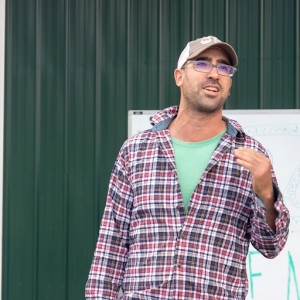
During his senior year of college, Farmer Mike was looking for something constructive to do. He decided to volunteer at a local farm and loved it. After pursuing a career in film for a few years, the land kept calling to him. Farmer Mike returned to farming, working at One Straw Farm in White Hall, MD. (One Acre Farm’s name is actually an homage to his mentors at One Straw Farm!) Farmer Mike is an instrumental advocate for the farming community, focused on bringing people together to fortify the local food economy and system.

Charlotte started farming in 2016 and has spent seasons on various farms of different sizes and focuses (fruit, protein, flower, etc.) learning the trade. Charlotte has been at One Acre Farm since 2019 and manages the employee benefit produce program with Adventist Healthcare Group as well as the farm’s year-round CSA, including the farm’s newsletters and communications. Her quick smile and amiable personality welcome people at CSA pick-ups, hospital markets, and all farm events.
Episode 5 | Innovate to Circulate: STEM and a Circular Economy
Cool tech meets sustainability. I will discuss the scientific and technological advances that will help us adopt the circular economy. These technological innovations showcase how we have the tools to make our world more sustainable. A company called Margik, created by Margaret Kocherga, is developing a technology to produce multifunctional materials for electronics that are 100% organic. I had a chance to speak with Dr. Kocherga about how these materials work and how they are beneficial to the environment: especially through designing out waste and pollution. I also spoke to Julia Daviy, the CEO of Imageneria, a company that allows users to 3-D print NFTs.
About the Featured Guests:
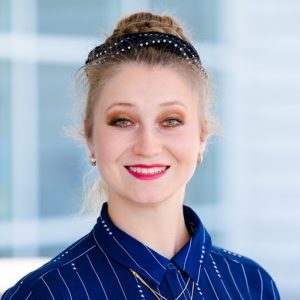
Margaret Kocherga, founder and CEO of Margik, is an award-winning early-stage entrepreneur. Her main specialty is in organic and hybrid materials for organic electronic devices. In addition to being a scientist, Dr. Kocherga is also a professional ballerina. Her trajectory from the stage to the laboratory was the result of a career-threatening injury. Overcoming hardships is something that she has learned to take in stride and uses to fuel her success. Dr. Kocherga is currently participating in the entrepreneurial program Chain Reaction Innovations, in partnership with Argonne National Lab, to help accelerate her technology’s market readiness. Dr. Kocherga is continuing to work with her alma mater, UNC Charlotte, as a business partner. Her goal is to help create a more sustainable future.
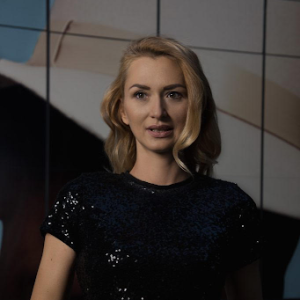
Julia Daviy is a cleantech entrepreneur, inventor, designer, and technologist. Julia Daviy is a co-founder and CEO of IMAGENERIA, the first platform for the digital delivery of real-world consumer products (through digital design and additive manufacturing) and phygital 3D-printable NFTs. Julia has also been known as a person who put Ukraine on the global map of the renewable energy industry and contributed to the development of cleantech in the emerging markets of Europe and Central Asia.
Episode 6 | Getting the Circle Rolling: Policies for a Circular Economy
The world is huge and complicated, so we need to work together! In this episode we will discuss some of the existing barriers to circularity and what can be done by governments, and businesses to overcome them through effective policies and partnerships. Additionally, we look at the role of cities in the circular economy. And finally, I analyze how cities are relevant in the circular transition. We will hear from Emily Yates who is the smart city director in Philadelphia, PA!
About the Featured Guest:
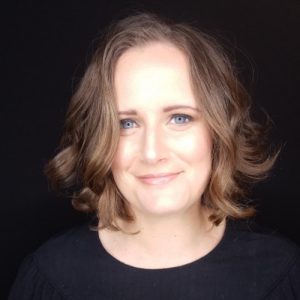 Emily is a strategic leader who has worked to position cities as globally competitive by utilizing a systems approach to develop strategies, projects and programs that innovate at the intersection of sustainability, technology, and economic development. As Smart City Director for the City of Philadelphia, Emily managed and led implementation of the SmartCityPHL Roadmap, ensuring that smart and emerging technology solutions to municipal challenges improved the quality of life for all residents, businesses, and visitors, and enabled efficient delivery of City services. She has held a variety of positions in Europe and North America, including urban planning positions with both the District of Columbia and the city of Cleveland. Emily was a recipient of the prestigious Alexander von Humboldt German Chancellor/ Bundeskanzler Fellowship, which funded a year of research focused on German approaches to the implementation of sustainability policy and climate change adaptation in brownfield development. Emily holds a Bachelor of Science in Landscape Architecture from Arizona State University. She is a member of the Emerging Leaders in Energy and Environmental Policy (ELEEP) Network.
Emily is a strategic leader who has worked to position cities as globally competitive by utilizing a systems approach to develop strategies, projects and programs that innovate at the intersection of sustainability, technology, and economic development. As Smart City Director for the City of Philadelphia, Emily managed and led implementation of the SmartCityPHL Roadmap, ensuring that smart and emerging technology solutions to municipal challenges improved the quality of life for all residents, businesses, and visitors, and enabled efficient delivery of City services. She has held a variety of positions in Europe and North America, including urban planning positions with both the District of Columbia and the city of Cleveland. Emily was a recipient of the prestigious Alexander von Humboldt German Chancellor/ Bundeskanzler Fellowship, which funded a year of research focused on German approaches to the implementation of sustainability policy and climate change adaptation in brownfield development. Emily holds a Bachelor of Science in Landscape Architecture from Arizona State University. She is a member of the Emerging Leaders in Energy and Environmental Policy (ELEEP) Network.
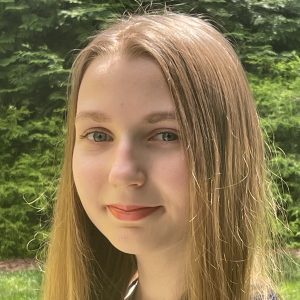
About Me:
My name is Alicja Mazurkiewicz. I’m a sophomore at the Holton-Arms School, and I am part of the 2021-2022 Bethesda Green Environmental leaders program this year. I can’t wait to work with other passionate people and gain first-hand experience in addressing environmental challenges at the local level. My passion lies in identifying and implementing approaches to preserve the health of the environment against the threats of rising pollution and climate change. As a young person, I want to do my part in protecting the environment, so I’m looking forward to engaging in projects with Bethesda Green that will have a true impact on my community!


